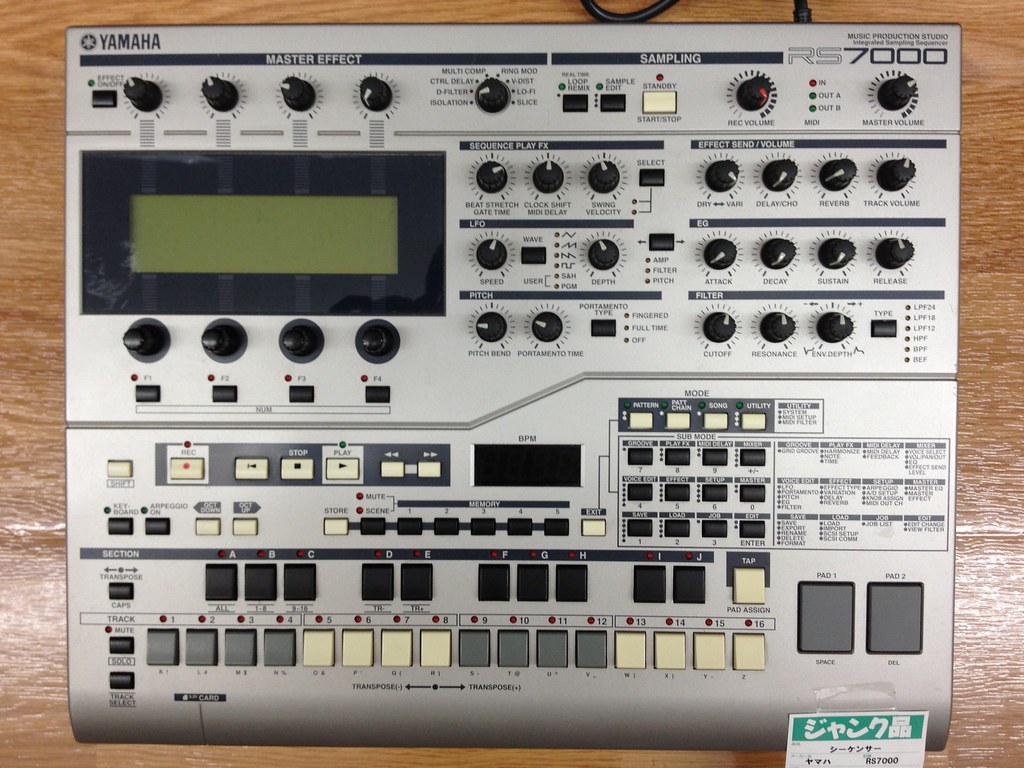Music production is an art that requires a combination of creativity, technical skills, and patience. As a beginner in this field, it can be overwhelming to navigate the vast amount of information available. With so many tools, techniques, and software programs to consider, it’s easy to get lost in the process. However, with the right mindset and approach, anyone can become a successful music producer. In this blog post, we’ll share 10 tips that can help you kickstart your journey towards becoming a skilled music producer. Whether you’re an aspiring artist or simply looking for a new hobby, these tips will give you the essential knowledge needed to produce high-quality music. So let’s dive in!
Table of Contents
Introduction: Why Music Production is an Exciting and Rewarding Journey for Beginners
Music production for beginners can be an exciting and rewarding journey. With the right tools and techniques, you can create professional-quality tracks that showcase your unique style and creativity. Whether you’re a complete novice or have some experience in music, learning the basics of music production is essential to get started. You’ll need to invest in essential equipment and software such as a computer, audio interface, microphone, headphones, and a digital audio workstation (DAW). Once you have your setup ready, it’s time to create a comfortable and productive workspace where you can focus on your music. In the following sections, we’ll explore some tips for developing your skills in music theory and composition, finding inspiration for your tracks, recording high-quality audio recordings, mixing and mastering your tracks to perfection, collaborating with other musicians, getting constructive feedback on your work, and promoting your music online.
Understanding the Basics: Essential Equipment and Software for Music Production
To start your music production journey, you need to have the right equipment and software. Digital Audio Workstation (DAW) is essential for recording, editing, mixing, and mastering your tracks. Popular DAWs used by beginners include FL Studio, Ableton Live, GarageBand (for Mac users), Pro Tools First, and Cubase LE.
You also need a computer/laptop with sufficient processing power and storage space to run the DAW smoothly. A pair of studio headphones or speaker monitors is necessary for monitoring your mix accurately.
Other optional but useful equipment includes a MIDI keyboard controller, an audio interface for connecting microphones/instruments to the computer, and a microphone stand/pop filter/shock mount combo if you plan on recording vocals.
Besides hardware gear, there are plenty of free/paid software plugins that can enhance your sound quality such as equalizers (EQ), compressors, reverbs/delays/choruses/effects processors/modulators/synthesizers/samplers. It’s important not to go overboard with buying too many plugins at once since it can be overwhelming initially; instead invest in just one plugin per category when starting out before adding more as needed.

Setting Up Your Workspace: Creating a Comfortable and Productive Environment
Creating a comfortable and productive workspace is crucial for successful music production. Eliminating distractions is key, so find a quiet space where you can focus on your work. Invest in a good quality chair and desk to avoid physical discomfort during long sessions. Proper lighting is also important to reduce eye strain and fatigue. Consider adding some plants or artwork to make the space more inspiring and visually appealing. Keep your equipment organized and easily accessible to save time and reduce frustration. Finally, ensure that your workspace is ergonomically sound to prevent any long-term injuries or health issues. By taking the time to set up a comfortable and efficient workspace, you’ll be able to focus on creating great music without any unnecessary distractions or discomfort.
Developing Your Skills: Tips for Learning Music Theory and Composition
Understanding the Basics: Music Theory Fundamentals for Beginners
Music theory is an essential part of music production for beginners. Understanding the basics of music theory will help you create melodies, harmonies, and chord progressions that sound good together. Start by learning the key signatures, scales, and chords. The major and minor scales are the most common scales used in music production. Chords are made up of three or more notes played together, and they can be major, minor, or diminished. Learning these fundamental concepts will give you a solid foundation to build upon as you continue to develop your skills in music production. Practice playing different chord progressions and experimenting with different melodies to get a feel for how they work together.
Tips for Composing Your First Song: From Melody to Chords
One of the most exciting parts of music production for beginners is creating your own music. Learning music theory can seem daunting, but it’s essential to composing songs that are both pleasing to the ear and technically sound. Start by choosing a key and chord progression that suits your style, then experiment with different melodies until you find something catchy. Consider adding drums or other percussion instruments to give your song more depth and rhythm. Don’t be afraid to make mistakes – often, some of our best ideas come from happy accidents! With practice, you’ll soon be able to compose tracks that truly showcase your creativity and talent in music composition.
The Importance of Structure: Arranging Your Music for Maximum Impact
One crucial aspect of music production for beginners is understanding the importance of structure in arranging your tracks. A well-structured song can have a significant impact on listeners, keeping them engaged and interested throughout its duration. One way to achieve this is by learning about popular song structures used in various genres, such as verse-chorus or A-B-A form. Additionally, experimenting with different instrumentation, dynamics, and textures can help add variety to your arrangement while maintaining cohesiveness. Don’t be afraid to take risks with unconventional structures or elements but always make sure they serve the overall composition’s vision.
Tools and Resources for Learning Music Theory and Composition
To become a successful music producer, it’s essential to have a solid understanding of music theory and composition. Fortunately, there are many tools and resources available online that can help you learn these skills. Some popular options include music theory apps like EarMaster and Tenuto, online courses from websites like Coursera and Udemy, and YouTube tutorials from experienced producers. Additionally, investing in a music theory book can provide a comprehensive guide to the fundamentals of music theory. With these resources at your disposal, you can develop your skills in music theory and composition and take your productions to the next level.

Finding Inspiration: Techniques for Generating Ideas and Staying Creative
Generating new ideas and staying creative is essential for any music producer. One technique for finding inspiration is to listen to a wide variety of music genres. This can help you identify unique sounds and techniques that you can incorporate into your own tracks. Another technique is to experiment with different instruments and sounds. Don’t be afraid to try something new or unconventional – sometimes the best ideas come from taking risks. Additionally, taking breaks and stepping away from your project can help clear your mind and provide fresh perspective when you return. Finally, collaborating with other musicians can also spark new ideas and lead to exciting creative opportunities. By staying open-minded and constantly seeking inspiration, you can keep your music fresh and innovative.

Recording Techniques: Tips for Capturing High-Quality Audio Recordings
Recording techniques are crucial in producing high-quality tracks. One important thing to consider is the microphone placement. Experiment with different mic positions to find the best spot that works for your instruments or vocals.
You should also be mindful of your recording environment. Make sure there’s minimal background noise and adjust the room acoustics accordingly. Consider using soundproof materials like foam panels, which can greatly improve audio quality.
Another tip is to record multiple takes of a track. This will give you options during mixing and editing stages, allowing you to choose the best take possible and create a seamless final product.
Finally, always remember to monitor your recording levels and avoid clipping (when audio peaks above maximum volume). Clipping can cause distortion and irreparable damage to your recordings. Use headphones or studio monitors when monitoring levels for optimal accuracy.
By following these recording tips, you’ll have a better chance at creating professional-sounding tracks that stand out from the crowd.

Mixing and Mastering: Techniques for Polishing Your Tracks to Perfection
Mixing and mastering are the final stages of music production, where you refine your tracks to sound polished and professional. During mixing, you balance the levels of each instrument and apply effects like EQ, compression, and reverb to create a cohesive sound. Mastering involves making final adjustments to the overall sound of your tracks, including volume levels and stereo width. To achieve a clean mix, it’s important to use high-quality headphones or studio monitors and take breaks to avoid ear fatigue. You can also use reference tracks from your favorite artists as a guide for achieving a similar sound. When mastering, it’s important to use a limiter to prevent clipping and ensure that your tracks are at an appropriate volume level for streaming platforms. Don’t be afraid to seek feedback from other musicians or hire a professional mastering engineer for a truly polished sound.

Collaboration and Feedback: How to Work with Other Musicians and Get Constructive Criticism
Finding the Right Collaborators: Tips for Networking and Building Relationships in the Music Industry
Networking and building relationships with other musicians is crucial for music production for beginners. Attend local music events, join online communities, and reach out to artists you admire on social media. Be genuine and show interest in their work. Collaborating with other musicians can bring fresh ideas and perspectives to your music. When working together, establish clear communication and set expectations upfront. Don’t be afraid to ask for feedback and constructive criticism from your collaborators. This can help you grow as a musician and improve your skills in music production. Remember to give back by supporting other artists in your network as well.
Giving and Receiving Feedback: How to Provide Constructive Criticism and Use it to Improve Your Music
When working with other musicians, communication is key. Be open to criticism and encourage feedback from others. When providing feedback, make sure it’s constructive, specific, and actionable. Avoid using vague language like “I don’t like it” or “It doesn’t sound good.” Instead, focus on what you do appreciate about the music while also offering suggestions for improvement. Remember that everyone has their own unique artistic vision and style – be respectful of this when collaborating with others and avoid imposing your own ideas onto their work. By giving and receiving feedback in a positive way, you can help each other improve as musicians and create even better music together.
Navigating Creative Differences: Strategies for Resolving Conflicts and Maintaining Positive Working Relationships
Collaborating with other musicians is a great way to enhance your music production skills and create something amazing. However, conflicts can arise when creative differences come into play. To maintain positive working relationships, it’s important to communicate openly and respectfully with your collaborators. Start by establishing clear goals and expectations for the project. Be open-minded and willing to compromise while staying true to your artistic vision. When disagreements do occur, take time to listen carefully to each other’s perspectives before finding common ground or considering alternative solutions. Remember that constructive criticism can be valuable in improving your work, so embrace feedback from others in the spirit of growth and improvement.
The Benefits of Collaboration: How Working with Other Musicians Can Enhance Your Skills and Expand Your Opportunities
Collaborating with other musicians is a great way to enhance your skills and expand your opportunities as a beginner in music production. Working with others can expose you to new techniques, ideas, and perspectives that you may not have considered before. It can also help you build connections in the industry and potentially lead to future collaborations or gigs. When collaborating, it’s important to communicate clearly and openly with your fellow musicians, listen to their feedback, and be open to compromise. Don’t be afraid to step out of your comfort zone and try new things – collaboration can be a valuable learning experience for all involved.
Promoting Your Music: Tips for Sharing Your Tracks Online and Building a Fanbase
Once you have created your music, the next step is to get it out there and build an audience. The internet has made it easier than ever to promote your tracks, but with so many platforms available, it can be overwhelming.
One important key phrase to keep in mind is target audience. Identify the group of people who would appreciate your style of music and tailor your promotions towards them. Utilize social media channels relevant to your genre such as SoundCloud or Bandcamp.
Consistency is another crucial factor when promoting your music online. Create content regularly, engage with fans through comments and feedback while also interacting with other artists within the community.
Try collaborating with other musicians by engaging in remix competitions or featuring on each other’s tracks – this will help expand reach and gain new followers from their fanbase.
Lastly, don’t forget about live shows! Performances at local venues provide exposure to potential fans outside of an online-only approach. By following these tips for promotion, you’ll be well on your way to building a dedicated fan base for yourself as a beginner musician.
In conclusion, music production is a thrilling and fulfilling journey that can be pursued by anyone with the passion for creating music. As a beginner, you may encounter some challenges along the way, but with dedication and practice, success is inevitable.
By following these 10 tips for successful music production as a beginner, you’ll be well on your way to honing your skills and crafting tracks that will inspire others. Remember to invest in essential equipment/software, create an ideal workspace for yourself, learn music theory/composition techniques, stay creative/inspired through various means of inspiration generation such as finding new genres or trying other art forms.
Recording techniques are also important so that you can capture high-quality audio recordings whether alone or collaborating with others plus polishing your tracks using mixing/mastering tools before sharing them online & building your fan base one track at a time!
To continue expanding your knowledge on this exciting field check out our other content available here at [Insert Website]. Thank you for reading this article and we hope

